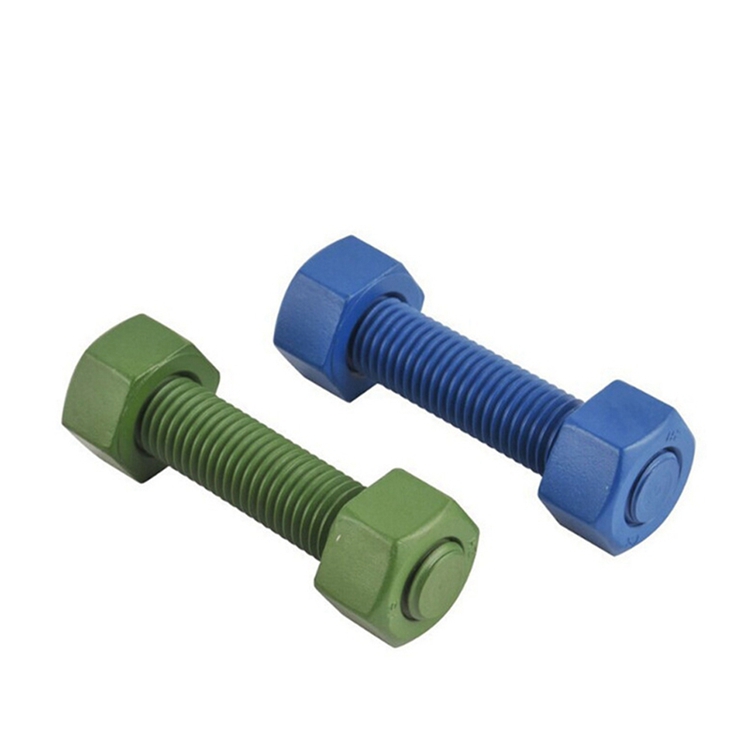China Expands Production of Heavy-Duty Stud Bolts for Industrial Applications
डिसेंबर . 26, 2024 02:20 Back to list
China Expands Production of Heavy-Duty Stud Bolts for Industrial Applications
Understanding China's Approach to Extending a Stud Bolt Innovations and Implications
In the realm of manufacturing and mechanical engineering, stud bolts play a crucial role. They are fasteners, typically threaded on both ends, used to secure two or more components together. The production and application of stud bolts can vary significantly across different countries, and China's approach to extending the capabilities and innovation surrounding stud bolts exemplifies its broader industrial strategies.
Recently, China has been exploring ways to enhance the design and functionality of stud bolts to meet the growing demands of various industries, from construction to automotive and aerospace. One major aspect of this innovation involves increasing the strength and reliability of stud bolts while maintaining cost-effectiveness. This is essential for industries where safety and performance are critical.
Material Innovations
One of the most significant trends in the development of stud bolts in China is the shift towards advanced materials. Traditional stud bolts are typically made from carbon steel, but there is a growing focus on using higher-grade materials, such as alloy steels or even composite materials. These advanced materials offer improved tensile strength, corrosion resistance, and durability, which are vital in ensuring longevity and safety in applications.
For instance, in the automotive sector, where high-stress conditions are commonplace, the demand for high-performance stud bolts has surged. By utilizing materials like stainless steel or titanium alloys, Chinese manufacturers are not only extending the lifespan of these components but also enhancing their performance under extreme conditions. Furthermore, the integration of coatings that provide additional resistance to wear and corrosion is becoming more prevalent, allowing the stud bolts to perform better in harsh environments.
Technological Advancements
In addition to material innovations, China is also investing heavily in modern manufacturing technologies. Automation and precision engineering are at the forefront of this revolution. The implementation of computer numerical control (CNC) machining enables the production of stud bolts with high precision. This improvement in machining processes minimizes defects and enhances the overall quality of the fasteners.
Moreover, advancements in 3D printing technology are being explored for the production of stud bolts. Historically, 3D printing has been limited in its ability to produce high-strength metals, but as technology has progressed, it is now possible to create intricate designs that were previously unattainable through traditional methods. This approach not only allows for customization but also leads to more efficient use of materials and reduced waste during production.
china extending a stud bolt

Quality Control and Standards
To compete in the global market, it is imperative that Chinese manufacturers adhere to international quality standards. The government and industry bodies have introduced rigorous testing and quality control measures to ensure that stud bolts meet safety and reliability benchmarks. This commitment to quality is essential as it builds trust with international buyers and helps enhance China's reputation as a leading manufacturer of fasteners.
The certification processes, such as ISO and ASTM standards, are being increasingly adopted by Chinese companies. By aligning with these global standards, they not only ensure product quality but also position themselves favorably in an increasingly competitive international market.
Environmental Considerations
Another critical aspect of extending stud bolt manufacturing in China is the consideration for environmental sustainability. Countries around the world, including China, are becoming more aware of the environmental impact of manufacturing processes. As such, efforts are being made to implement greener practices in the production of stud bolts.
This includes using recycled materials and reducing energy consumption during manufacturing. By focusing on sustainability, Chinese firms can meet the dual goals of economic growth and environmental responsibility, thereby aligning with global trends toward greener manufacturing processes.
Conclusion
China's initiative to extend the stud bolt manufacturing process through material innovation, technological advancements, rigorous quality control, and sustainability efforts reflects its broader industrial ambitions. As industries continue to evolve and demand more reliable and efficient products, Chinese manufacturers are responding with enhancements that not only improve performance but also meet international standards. These efforts signify a robust future for China's stud bolt industry, positioning it as a key player in global manufacturing.
Latest news
-
High-Quality Bolts for Lawn Mower Handle Supplier & Manufacturer
NewsAug.21,2025
-
Reliable Axle Nuts Supplier | High-Quality Automotive Parts
NewsAug.19,2025
-
Premium Wire Bolts Suppliers | Durable & Reliable Fasteners
NewsAug.18,2025
-
Leading Metric Wood Screw Companies & Manufacturers
NewsAug.17,2025
-
Top Wire Bolts Suppliers - Quality & Durable Fasteners
NewsAug.15,2025
-
Trusted Wire Bolts Company | Quality Fasteners Supplier
NewsAug.14,2025
